Abstract
The cluster-sampling method can be used to conduct rapid assessment of health and other needs in communities affected by natural disasters. It is modelled on WHO's Expanded Programme on Immunization method of estimating immunization coverage, but has been modified to provide (1) estimates of the population remaining in an area, and (2) estimates of the number of people in the post-disaster area with specific needs. This approach differs from that used previously in other disasters where rapid needs assessments only estimated the proportion of the population with specific needs. We propose a modified n x k survey design to estimate the remaining population, severity of damage, the proportion and number of people with specific needs, the number of damaged or destroyed and remaining housing units, and the changes in these estimates over a period of time as part of the survey.
Full text
PDF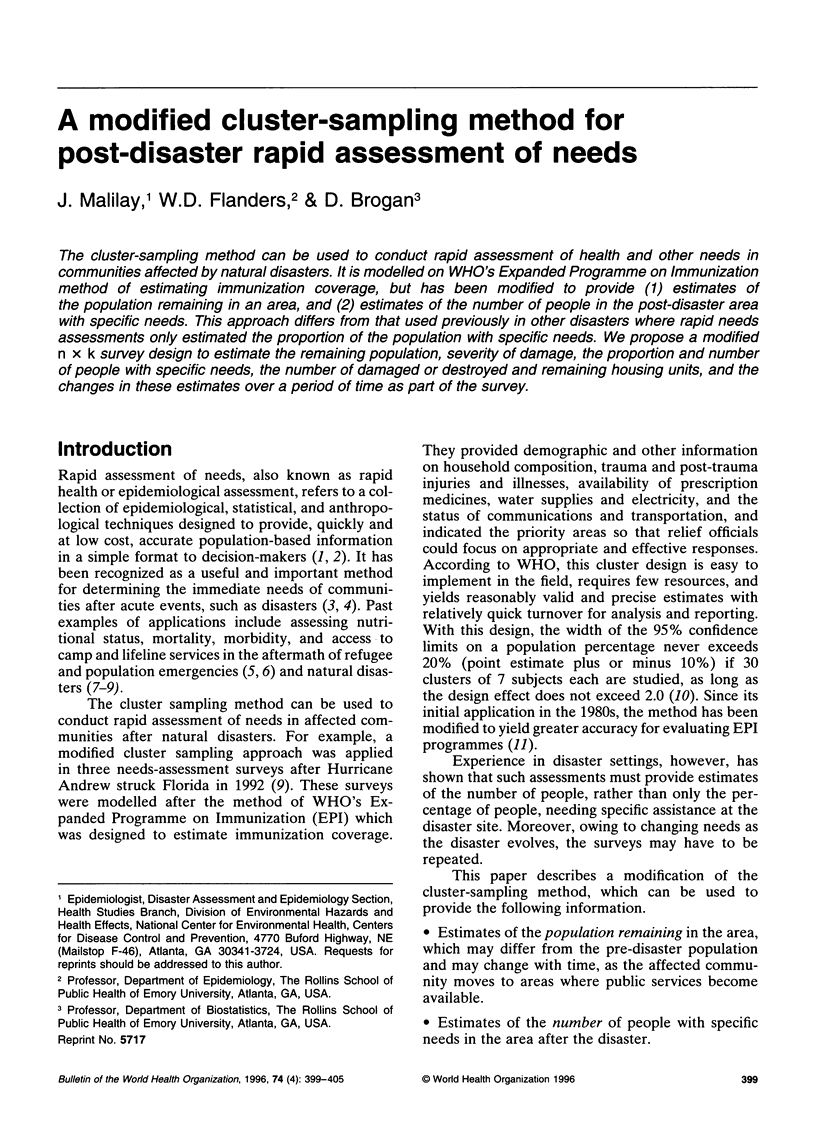
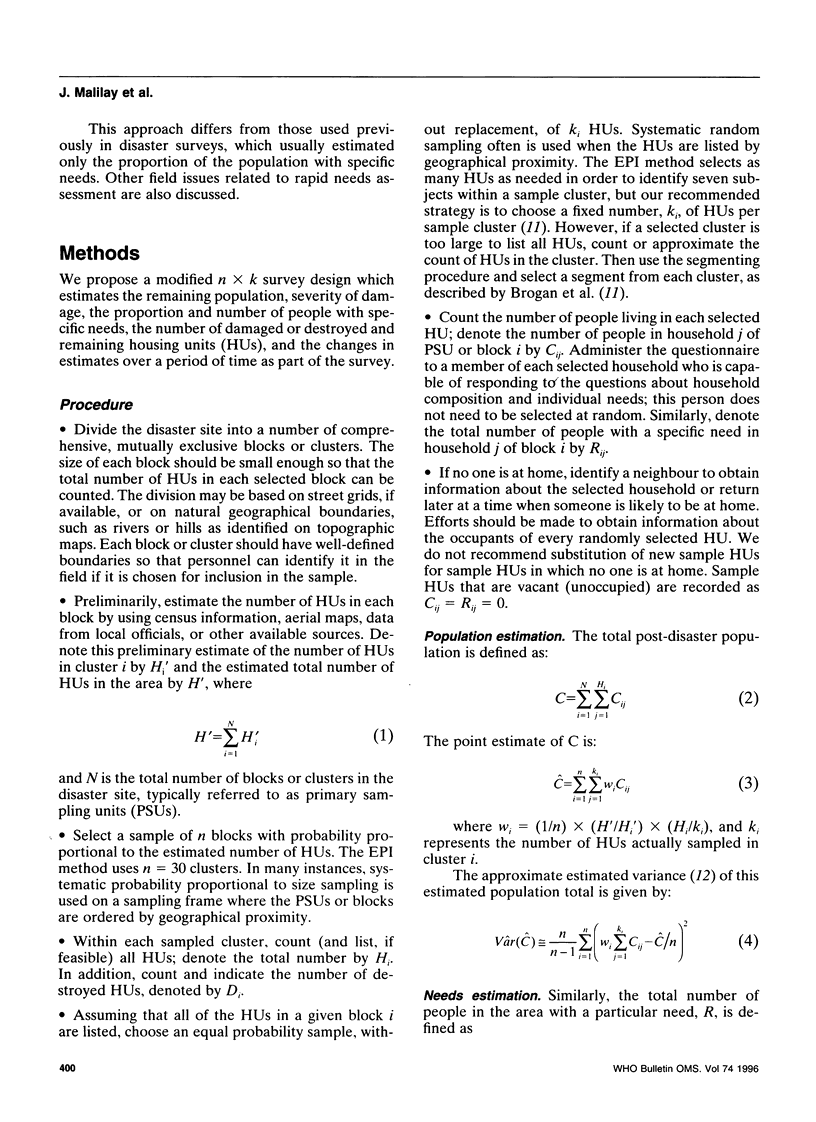
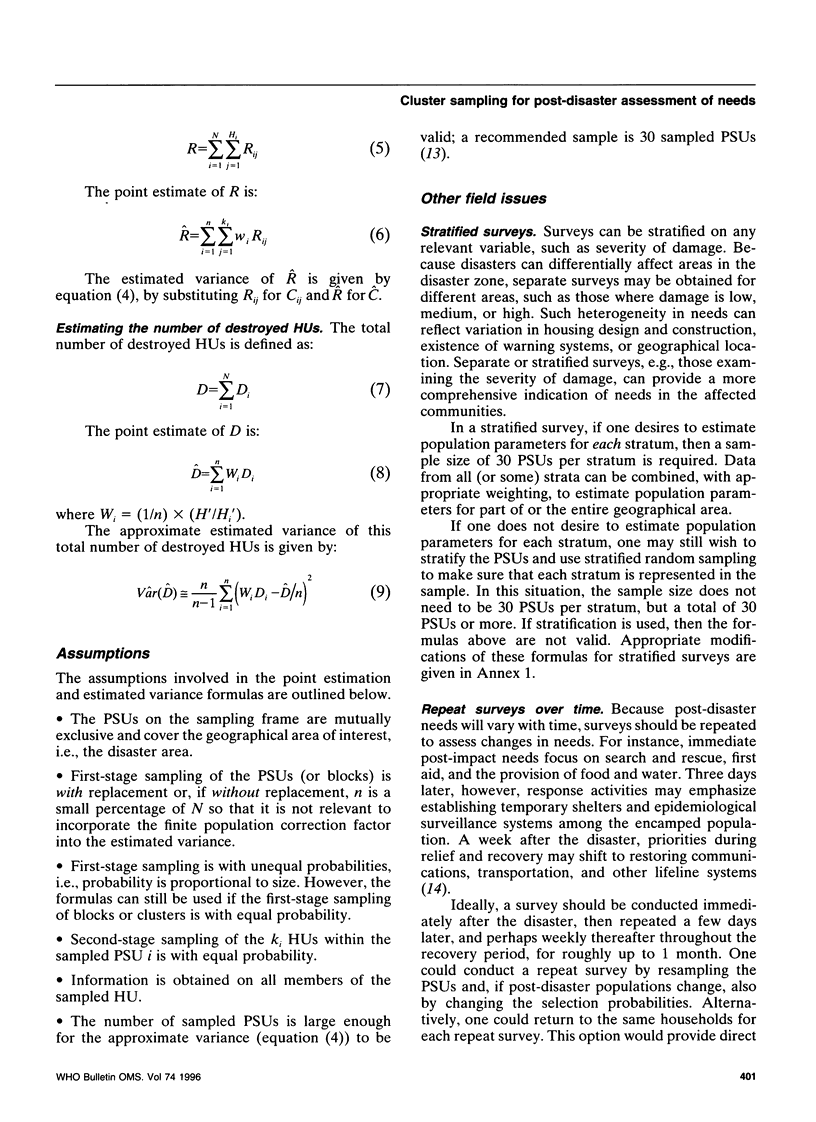
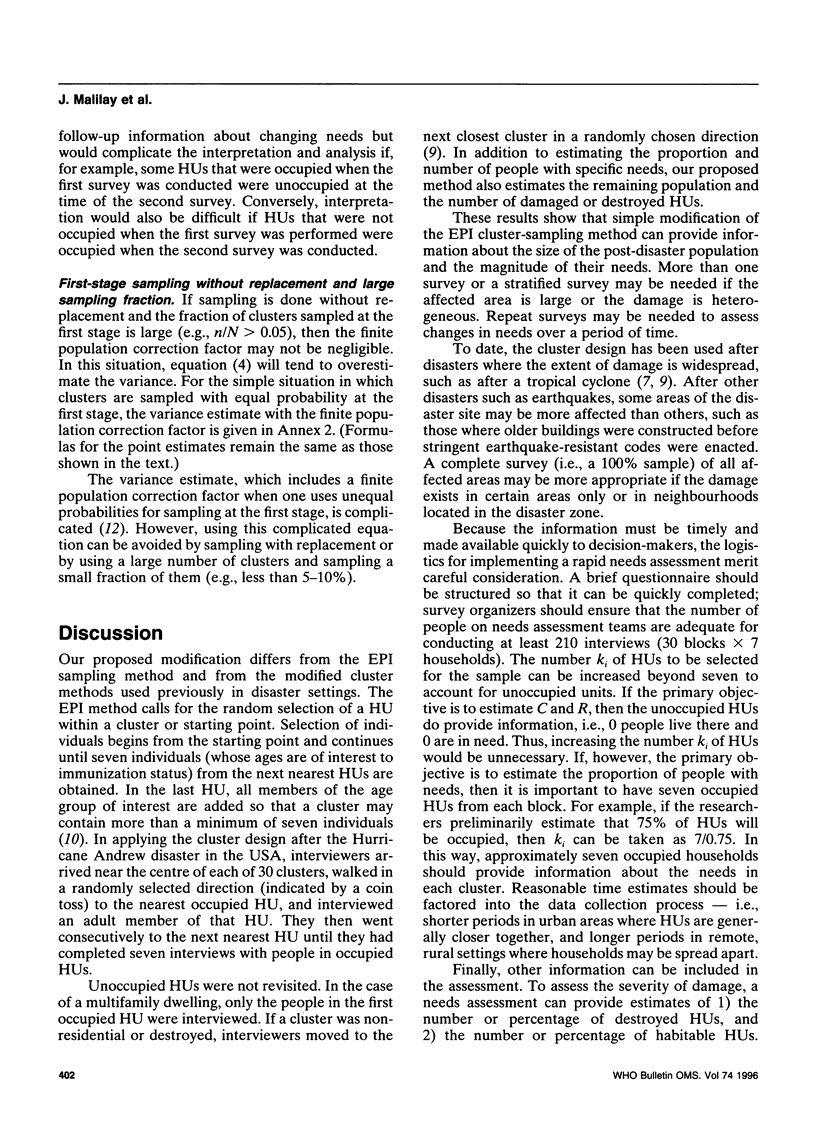
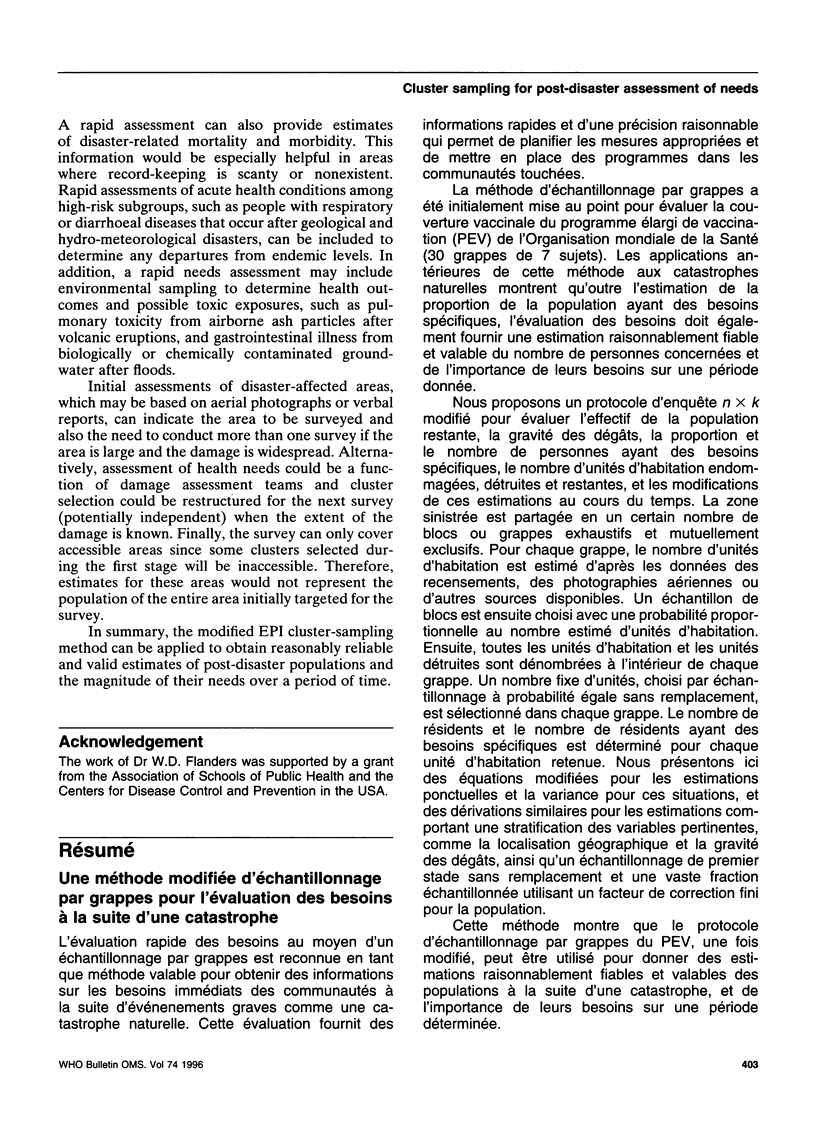
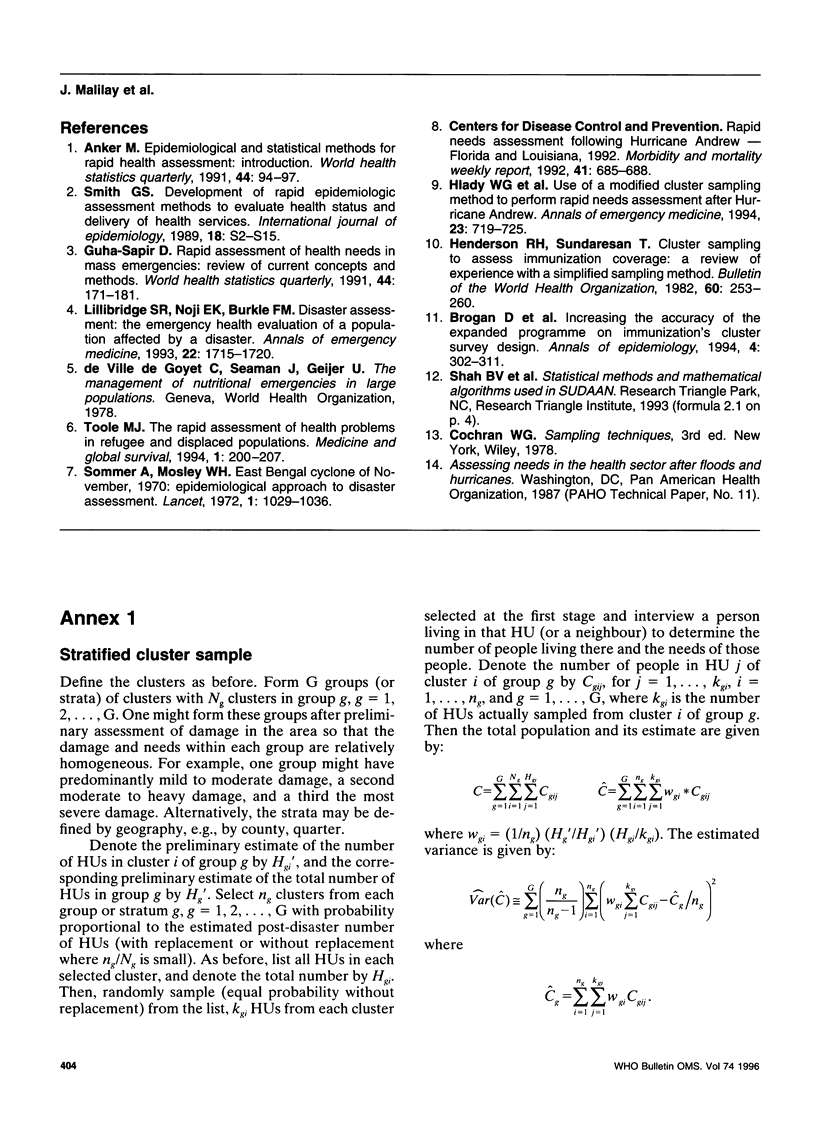
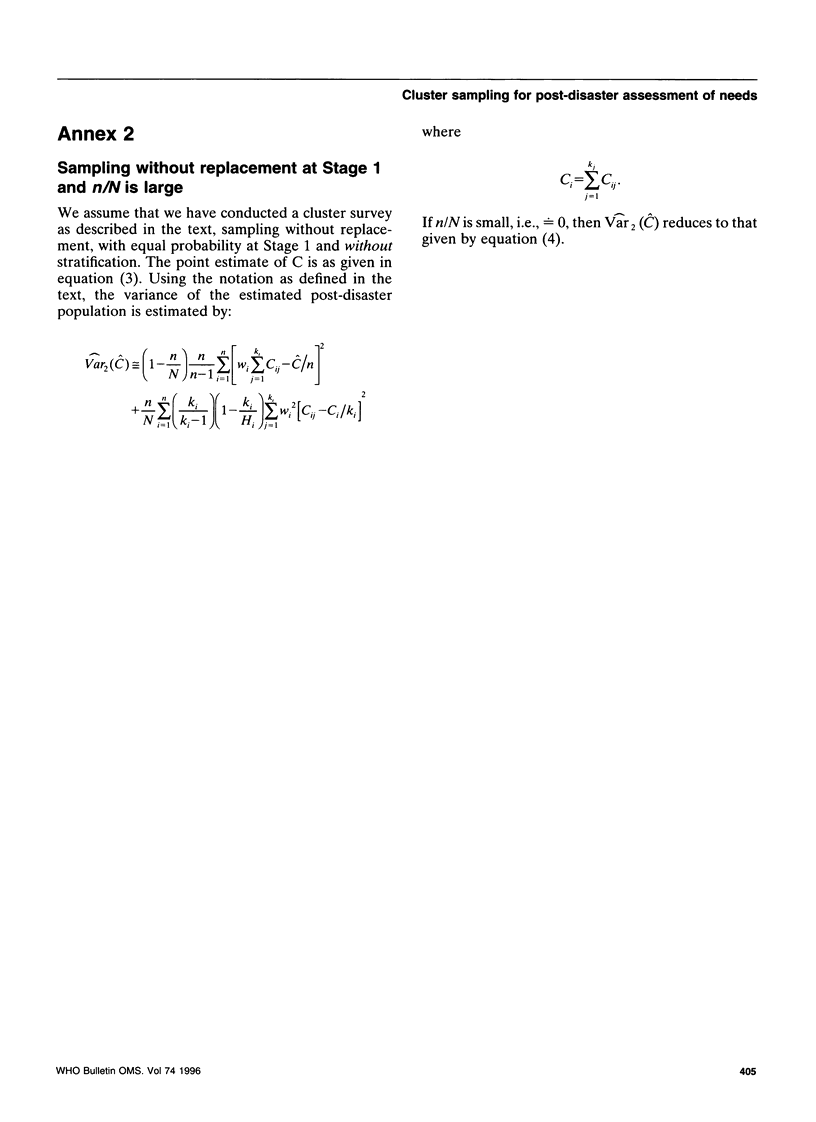
Selected References
These references are in PubMed. This may not be the complete list of references from this article.
- Anker M. Epidemiological and statistical methods for rapid health assessment: introduction. World Health Stat Q. 1991;44(3):94–97. [PubMed] [Google Scholar]
- Brogan D., Flagg E. W., Deming M., Waldman R. Increasing the accuracy of the Expanded Programme on Immunization's cluster survey design. Ann Epidemiol. 1994 Jul;4(4):302–311. doi: 10.1016/1047-2797(94)90086-8. [DOI] [PubMed] [Google Scholar]
- Centers for Disease Control (CDC) Rapid health needs assessment following hurricane Andrew--Florida and Louisiana, 1992. MMWR Morb Mortal Wkly Rep. 1992 Sep 18;41(37):685–688. [PubMed] [Google Scholar]
- Guha-Sapir D. Rapid assessment of health needs in mass emergencies: review of current concepts and methods. World Health Stat Q. 1991;44(3):171–181. [PubMed] [Google Scholar]
- Henderson R. H., Sundaresan T. Cluster sampling to assess immunization coverage: a review of experience with a simplified sampling method. Bull World Health Organ. 1982;60(2):253–260. [PMC free article] [PubMed] [Google Scholar]
- Hlady W. G., Quenemoen L. E., Armenia-Cope R. R., Hurt K. J., Malilay J., Noji E. K., Wurm G. Use of a modified cluster sampling method to perform rapid needs assessment after Hurricane Andrew. Ann Emerg Med. 1994 Apr;23(4):719–725. doi: 10.1016/s0196-0644(94)70305-1. [DOI] [PubMed] [Google Scholar]
- Lillibridge S. R., Noji E. K., Burkle F. M., Jr Disaster assessment: the emergency health evaluation of a population affected by a disaster. Ann Emerg Med. 1993 Nov;22(11):1715–1720. doi: 10.1016/s0196-0644(05)81311-3. [DOI] [PubMed] [Google Scholar]
- Sommer A., Mosley W. H. East Bengal cyclone of November, 1970. Epidemiological approach to disaster assessment. Lancet. 1972 May 13;1(7759):1029–1036. [PubMed] [Google Scholar]


